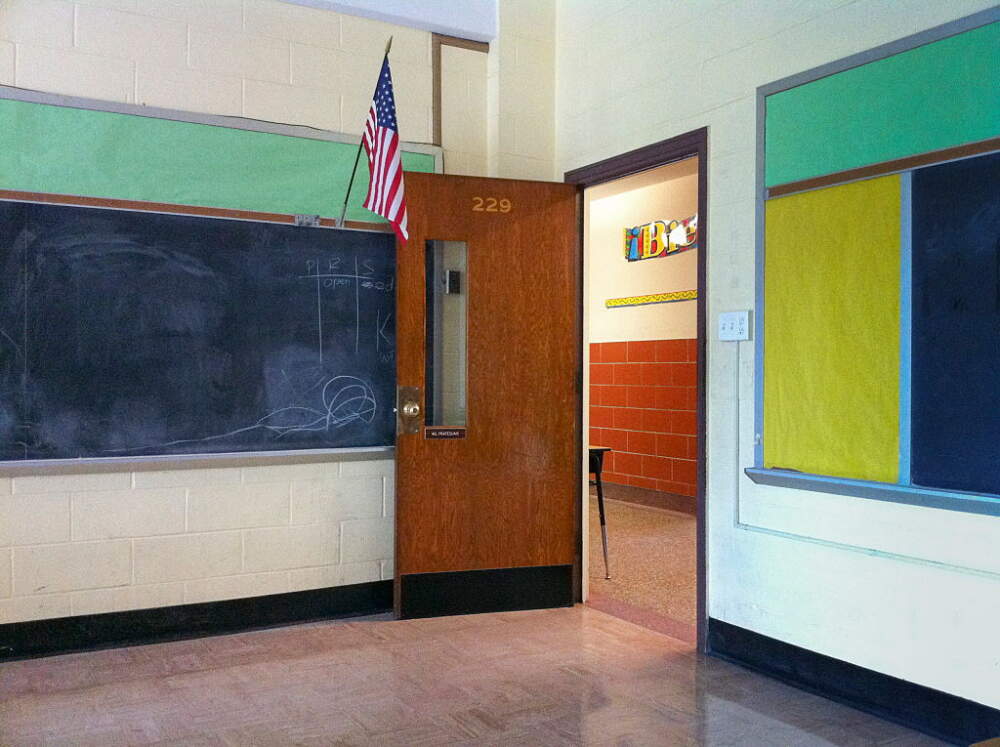Advertisement
Commentary
New laws threaten educators who teach history. Where does that leave our democracy?

It never occurred to me until recently that someone who had never set foot in my classroom, who had never taught or studied my discipline, could dictate what I teach — or that I could lose my job and credentials based on their beliefs. But last fall, my colleague Christopher Martell and I presented our book “Teaching History for Justice,” at the National Social Studies Conference, and after the presentation many fellow educators approached me to say they wanted to teach for justice, but they were scared.
Scared of what, I asked? A Tennessee teacher told me that a colleague is being investigated for allowing students to share their pronouns. Another told me she feels like a coward for dropping the Stonewall Riots from her curriculum, but fears the financial repercussions of losing her job. And a South Carolina education professor said he tells his social studies student-teachers not to mention any current elections in their classrooms. It is just too divisive, he said. And those were just a few of the stories. That is when I realized the power of divisive concept legislation. So, I began to do some research.
This type of legislation, which is being considered and signed into law across the nation, is designed to limit the discussion of “divisive concepts” in the classroom and workplace. President Trump defined nine kinds of race and sex stereotyping and scapegoating as divisive concepts in an executive order in 2020. And the first divisive concept law (DCL) was passed in 2021. These laws initially targeted K-12 teachers and curricula.
The atmosphere created by these laws may prevent educators from teaching about history, civic responsibility and current events. But one of the key purposes of universal public education is to prepare Americans for democratic citizenship. That is what I do as a teacher educator. We want to create classrooms where teachers empower their students to use the levers of democracy to create change.
DCLs severely limit teachers’ ability to do that. And the laws miss the point: educators don't want to teach kids what to think, but it is their job to help kids learn how to think critically.
Intentionally or not, DCLs limit teachers’ abilities to do that. Consider the Stop WOKE Act in Florida, which could be interpreted as banning any mention of structural racism on the grounds that the concept is one of eight prohibited teachings. The idea behind the law is to prevent students from feeling guilty for historical racist acts they did not commit — which one can understand — but it is a slippery slope. In an effort to teach students to be empathic thinkers and critically examine topics like slavery, teachers may be in violation of the law. And this isn’t just happening in Florida.
According to an Education Week analysis, there are only eight states that have not introduced state-level action or bills regarding critical race theory (CRT). Forty-four states have introduced bills or proposed other actions that would restrict teaching CRT or prescribe how teachers talk about racism and sexism. And eighteen states have imposed bans or restrictions, including Tennessee where, in July, a parents group sued the school officials and state department over the curriculum. In my 15 years of public school teaching, I never once worried about being sued or targeted for what I was teaching.
But today’s teachers know this worry all too well, and it takes its toll. In 2022, The Washington Post reported that since 2020, 74 educators lost their jobs and 92 resigned, either of their own volition or under pressure, because of these culture wars. While we think of DCLs as targeting liberal ideologies, conservative teachers are not immune. According to The Post, the teachers' let go were split 50/50, 31 for “adhering” to conservative ideologies, 31 for liberal ones (the cause for the other 12 was “unclear”). And often they don’t even know they’re violating the law. Consider, for instance, Matt Hawn, of Tennessee, who lost his job for teaching about white privilege. Hawn was told he was removed for teaching critical race theory, but had never even heard the term before he was fired for it.
And that’s both the point and the problem. These bans are purposefully broad and vague — which means that teachers are walking a tightrope every time they stand at the front of their classrooms. Critical race theory has become a catchall term used as a scare tactic. The theory simply asks people to consider race in the context of historical and current events and rejects the idea of color blindness. It originated in legal scholarship decades ago and is rarely taught in K-12 settings, but the suspicious atmosphere created by DCLs intimidates teachers, making them worried that simply mentioning race could cost them their jobs.
In the midst of a dire national teacher shortage, these laws will make recruiting and retaining educators even more difficult.
Teachers were already vulnerable before DCLs complicated their jobs. They’re underpaid, undervalued, and overworked. And now they are being policed by people who aren’t educators, and they fear for their jobs. In the midst of a dire national teacher shortage, these laws will make recruiting and retaining educators even more difficult.
In many ways, teachers are the frontline guardians of our democracy. They teach children and young adults about our civic privileges and responsibilities, our republic’s history, how to coexist with their fellow citizens and how to better understand a world they have yet to see. It's hard, important work. It's not about sowing the seeds of division; it's about sowing the seeds of curiosity and compassion.
The people behind these laws are taking calculated measures to silence the exchange of ideas and simplify the citizenry. That’s the playbook of an authoritarian government. We can’t learn from the past if we only teach a sanitized and simplified version of it.
